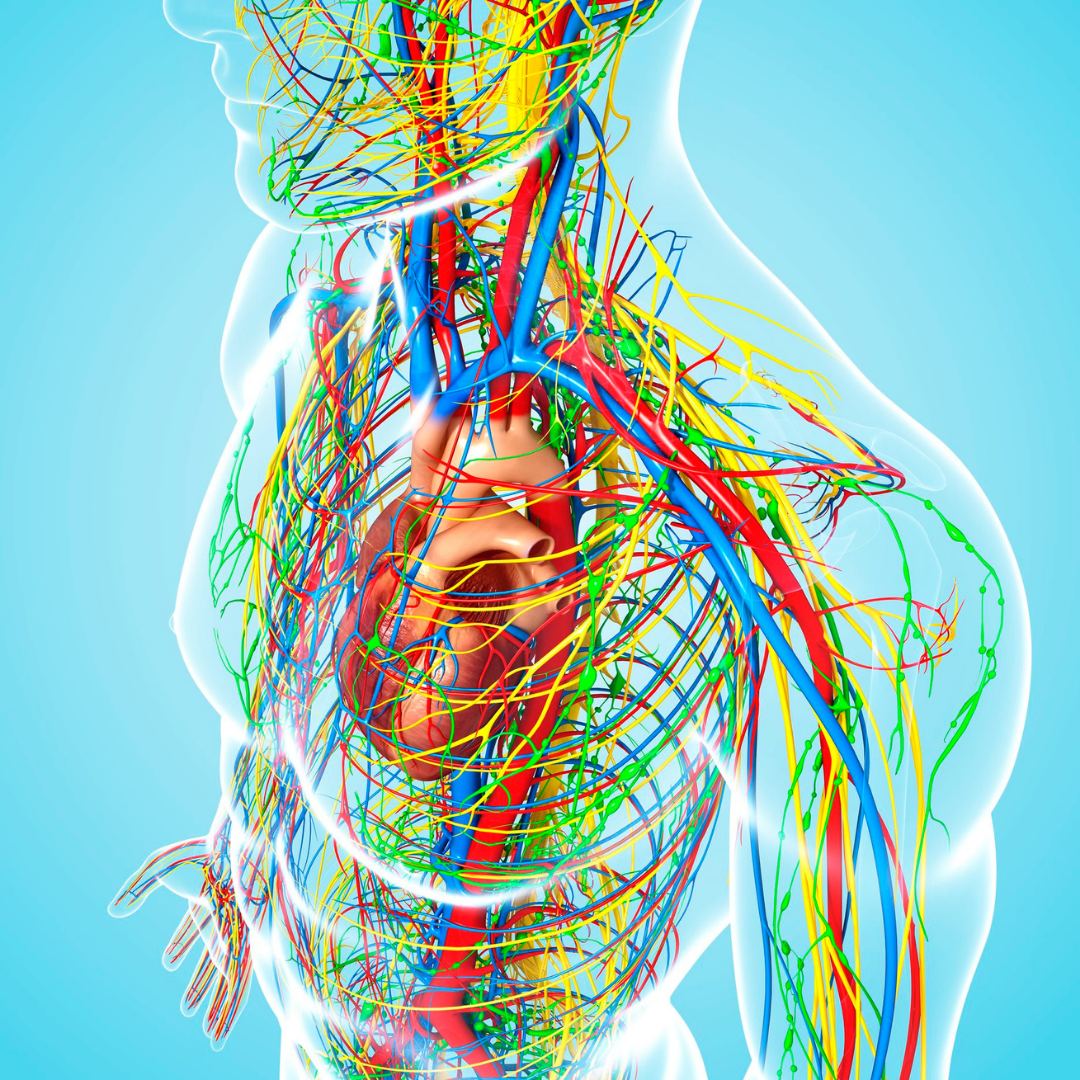Wellness Blog
The content on this blog is for general informational purposes only and is not a substitute for professional medical advice, diagnosis, or treatment. Always consult your healthcare provider before making changes to your health routine or taking new supplements.
4 tips to manage everyday stress triggers
Stress triggersEvery one of us has dealt with some level of stress in our lives. Most of the stress that we experience comes from triggers that appear in our everyday lives. Triggers come in many forms, but some of the common ones include: Major life changes Environment Unpredictable events Workplace Social Traumatic events It may be difficult for us to completely avoid some of these events, such as school, work, or personal reasons, therefore it is important that we learn to manage them. So, whether you are experiencing some of these stress triggers because of work, school, family, or other personal reasons - it's important that we try to manage them.Stress management tipsStress doesn't just affect our mental and emotional health, but it can have effects on our physical body as well. Here are some of the ways that you can practice effective stress relief and stress management.Learn how to relax with breathingIf you find yourself feeling overwhelmed, worried, or under a lot of pressure, breathing exercises can help. They're a great way to relax and keep your head clear of the negative thoughts that may be clouding your mind (1). You can practise deep breathing by going to a quiet place where you can focus on your breathing. A simple breathing exercise with a regular rhythm to help you calm down can go something like this (2): Breathe in through your nose and inhale until your lungs are filled. Put your hands on your stomach when you do this, and feel your hands ascend and descend. Inhale slowly and regularly, counting 1 to 5. Exhale slowly, counting 1 to 5. Imagine the stress going away as you do this. Repeat this exercise until you feel calm. Exercise the stress awayThere's a reason why it's common to hear that exercise is a great method for stress relief. Exercise is known to make our bodies produce endorphins, the chemical that helps relieve stress and pain naturally. Now, this doesn't mean that you need to do excessive amounts of exercise to produce endorphins. Doing something as simple as aerobics, jogging, yoga, or Tai Chi can help you with endorphin production (3).Avoid unhealthy habitsOver the years, many of us have learned how to deal with stress in many different ways. Some of the most common ways people have learned to “destress” is by consuming alcohol and using tobacco/nicotine products. However excessive consumption of alcohol may lead to more stress as it can cause health issues (3). Using tobacco/nicotine products may appear to be a temporary stress reliever for many, but it's important to remember that these products can cause some serious health issues with breathing and blood flow down the road (3).Support stress management with supplementationA healthy and well-rounded diet can ensure that your body receives important nutrients to help it function. Supplementing your diet with the right minerals and vitamins can be helpful in cases where you are unable to meet your recommended daily intake.Here are the essential vitamins and minerals that you can consider as part of your daily supplementation plan:AshwagandhaAshwagandha is a herb that supports a healthy stress response in the body. It has been shown to safely and effectively improve a stress response in the body (4).MagnesiumBeing stressed increases the body's need for magnesium (5). Magnesium is needed by the body for hundreds of biochemical processes. The hormones that are released in response to stress can also lead to a decrease in magnesium in the body.B complexB vitamins help maintain a healthy nervous system which in return assists with stress management and mood (6).CalciumCalcium helps to initiate muscle contraction - specifically the regulation of heart muscle contractions (7). Stronger heart muscles enable us to exercise and work out more effectively, allowing us to better engage in this stress-busting activity.Vitamin B12Just like calcium, vitamin B12 can help with healthy stress release via exercise. This is because Vitamin B12 helps produce energy for the body that it needs when performing any kind of physical activity such as exercise. Like other B vitamins, vitamin B12 helps transform the food you eat into energy (8).Ginkgo BrahmiGinkgo and Brahmi enhance the body's adaptation to stress and helps relieve symptoms of stress (9). Gingko helps reduce stress and mild anxiety, and Brahmi shows to help with the normalisation of stress induced changes in regions of the brain (9).Facing stress will always be a part of our lives, but just because it's always there, it doesn't mean that we can't take the right measures to manage it. By practicing some of the healthy stress management tips given; and supplementing your healthy diet with the minerals and vitamins needed to fight stress - you can find yourself in a better position to handle stress. To get started on creating your own daily vitamin packs for stress, you can count on Vitable Australia's vitamin subscription service to help you out with just that! Find out more about other areas that the above supplements can help you with:Ashwagandha | Magnesium | B Complex | Calcium plus | Vitamin B12 | Ginkgo Brahmi*Always read the label. Follow the directions for use. If symptoms persist, talk to your health professional. Vitamin and/or mineral supplements should not replace a balanced diet.References: Mayo Clinic. “Stress Management”. Mayo Clinic. Published (n.d) on https://www.mayoclinic.org/healthy-lifestyle/stress-management/in-depth/stress-management/art-20044151. Accessed November 22, 2021. Health Direct. “Relaxation techniques for stress relief”. Health Direct. Published (n.d) on https://www.healthdirect.gov.au/relaxation-techniques-for-stress-relief. Accessed November 22, 2021. Cleveland Clinic. “Stress: 10 Ways to Ease Stress”. Cleveland Clinic. Published (n.d.) on https://my.clevelandclinic.org/health/articles/8133-stress-10-ways-to-ease-stress. Accessed November 22, 2021. Vitable. “Ashwagandha”. Vitable. Published (n.d.) on https://research.get.vitable.com.au/ashwagandha-plus. Accessed November 22, 2021. Vitable. “Magnesium”. Vitable. Published (n.d.) on https://research.get.vitable.com.au/magnesium. Accessed November 22, 2021. Vitable. “B-Complex”. Vitable. Published (n.d.) on https://research.get.vitable.com.au/b-complex. Accessed November 22, 2021. Vitable. “Calcium Plus”. Vitable. Published (n.d.) on https://research.get.vitable.com.au/calcium-plus. Accessed November 22, 2021. Vitable. “B-12”. Vitable. Published (n.d.). On https://research.get.vitable.com.au/vitamin-b12. Accessed January 6, 2022. Vitable. “Gingko & Brahmi”. Vitable. Published (n.d.) on https://research.get.vitable.com.au/ginkgo-brahmi. Accessed November 22, 2021.
Learn moreAnti-ageing skincare tips to keep your skin youthful
As the largest organ, the skin is exposed to elements that cause ageing. For example changes in season, especially during summer and winter could take a toll on skin health. Humidity can prevent it from retaining enough moisture to keep it supple and lower its skin barrier function (1), while over-exposure to ultraviolet (UV) rays, especially during summer, can damage skin cells (2).Let's take a look at how you can have healthy and youthful-looking skin, plus steps you can take to reduce the skin-ageing process.What is skin ageing?Skin ageing is a natural occurrence. As we age, our skin is less able to recover from stress and repair itself due to several factors, like losing moisture at a quicker rate or producing ess nutrients such as biotin and collagen that keep it looking supple. It is a form of degeneration experienced by the body over time.Ageing happens to each of us, albeit at different speeds and stages. There are a variety of factors that impact the rate at which our skin ages, including the environment and changes in the body (19).What are some signs of ageing skin?Signs of ageing skin include thinning and sagging of the skin, the appearance of wrinkles, age spots and broken vessels, and dryness (3).With age, the cell production of the epidermis will slow down and make it look thinner, paler and more translucent (3). Some experience sagging as the skin's elasticity and strength lessens, due to lower levels of elastin and collagen being produced. Gravity also affects how the skin hangs on one's body over time (4). Thinning can also cause broken blood vessels to appear as bruises (4).Thinning and less cell production make the skin more prone to wrinkles. Areas which crease more such as the forehead, and around the eyes and mouth are more likely to have fine lines and wrinkles (4).Melanin in the skin helps in protecting it from UV rays. These are produced by melanocytes. During the ageing process, these pigment-containing cells not only reduce in number but also increase in size (3). They appear as age spots on the skin and are seen mostly in areas that are frequently exposed to the sun.When the skin ages, less sweat and oil glands are produced in the skin. This makes the skin less moist and can be itchy and dry at times (3).Depending on exposure to the sun, as well as these other factors, the skin may experience premature ageing. That is why being able to identify the warning signs can help you take immediate steps to prevent it from worsening.What are the factors that cause skin ageing?The signs of ageing skin are caused by two factors: intrinsic and extrinsic ageing (5). Intrinsic ageing is the natural occurrence of ageing. It's when cell production decreases, the epidermis becomes thinner, and collagen production decreases (5).On the other hand, extrinsic ageing is an external factor that affects the skin such as the environment and lifestyle choices (6). This includes exposure to UV rays, skincare routine, and diet, among other things.What anti-ageing skincare steps can be done to keep skin healthy?While intrinsic ageing occurs naturally, we can take steps to address extrinsic ageing.One way is to be careful when exposed to the sun. Applying sunscreen with the right SPF, wearing protective clothing, and using umbrellas can avoid direct exposure to the sun.Taking care of your skin also involves being mindful of your skincare routine. Make sure to apply creams and lotions which are gentle to your skin. Washing your face can also remove irritants and keep the skin clean. Using moisturiser also helps the skin to retain moisture.A healthy and well-rounded diet can also provide benefits for your skin. There are nutrients found in food that can support and maintain skin health.What nutrients can benefit your anti-ageing skincare routine?While a balanced diet should be the priority when consuming vitamins and minerals, supplementation can help you achieve your recommended daily amounts. Here are some vitamins and minerals you can consider as part of your supplementation plan:ZincZinc supports skin health by playing a role in wound healing and cellular repair (7). A study shows that it has anti-inflammatory effects which prevent skin illnesses with daily use (8).IronIron, like zinc, can help the skin through wound healing. It is an essential part of collagen formation and metabolism (9).*Iron should only be taken if prescribed by your doctor.CollagenCollagen is one of the building blocks of skin. Increasing collagen through food and supplementation can further boost skin health. It aids in skin hydration to minimise fine lines and wrinkles (16). It also keeps the skin elastic to improve its outer appearance (17).AstaxanthinAstaxanthin, which gives salmon its reddish tinge, supports the skin with its antioxidant and anti-inflammatory properties to minimise skin ageing (10). It also provides skin moisture and elasticity (11) which makes skin look more youthful.Vitamin B complexVitamin B complex supports skin health as one of the treatments for skin lesions (12). It maintains skin health by minimising skin discoloration (13) and improving its firmness (14).Vitamin CVitamin C supports the skin from signs of ageing by keeping the collagen density at its optimal level and strengthening the collagen network (15). Cranberries and citrus fruits are some of the food sources of vitamin C which can improve skin health.BiotinBiotin provides a natural barrier in the skin which protects it from the sun and other toxins. This can help minimise the effects of the sun's rays, which is one of the major contributors to skin ageing (18).These nutrients can be found in the food that we eat on a daily basis. In cases where nutrients are not within the recommended daily intake, supplementation can be considered to avoid a nutritional shortfall.Where can I get the best supplements for anti-ageing skincare?You can include supplements alongside your healthy and well-rounded diet with Vitable. We provide supplement subscriptions so that you get the right amount of nutrients when you need them to support skin health.Create your own vitamin plan by identifying what your body needs. Vitable can assist you on which ones you need through a quick assessment you can take any time. From there, your custom multivitamins packs will be ready and sent to your home through vitamin delivery within Australia and even selected countries abroad.Find out more about other areas that the above supplements can help you with:Zinc | Iron | Collagen | Astaxanthin | B complex | Vitamin C | Biotin*Always read the label. Follow the directions for use. If symptoms persist, talk to your health professional. Vitamin and/or mineral supplements should not replace a balanced diet.References: Engebretsen, K. Johansen, J., Kezic, S., Linneberg, A., and Thyssen, J. “The effect of environmental humidity and temperature on skin barrier function and dermatitis”. Journal of the European Academy of Dermatology and Venereology. Published Feb. 2016 on https://doi.org/10.1111/jdv.13301. Accessed on Nov. 20, 2021 Singh, B., and Maibach, H. "Climate and skin function: an overview". Skin research and technology. Published Mar. 25, 2013 on https://doi.org/10.1111/srt.12043. Accessed on Nov. 20, 2021 Dugdale, D. “Aging changes in skin”. Medline Plus. Published Jul. 25, 2020 on https://medlineplus.gov/ency/article/004014.htm. Accessed on Nov. 20, 2021 “Healthy ageing - the skin”. Better Health Channel. Published on https://www.betterhealth.vic.gov.au/health/conditionsandtreatments/healthy-ageing-the-skin. Accessed on Nov. 20, 2021 Zhang, S., and Duan, E. “Fighting against Skin Aging: The Way from Bench to Bedside. Cell transplantation. Published Apr. 25, 2018 on https://doi.org/10.1177/0963689717725755. Accessed on Nov. 20, 2021 “11 Ways to Reduce Premature Skin Aging”. American Academy of Dermatology Association. Published Feb. 24, 2021 on https://www.aad.org/public/everyday-care/skin-care-secrets/anti-aging/reduce-premature-aging-skin. Accessed on Nov. 20, 2021 Lin, P., Sermersheim, M., Li, H., Lee, P., Steinberg, S., and Ma, J. “Zinc in Wound Healing Modulation”. Nutrients. Published Jan. 2018 on https://doi.org/10.3390/nu10010016. Accessed on Nov. 20, 2021 Gupta, M., Mahajan, VK., Mehta, KS., and Chauhan, PS. “Zinc therapy in dermatology: a review”. Dermatology research and practice. Published Jul. 10, 2014 on https://doi.org/10.1155/2014/709152. Accessed on Nov. 20, 2021 Wright, J. A., Richards, T., and Srai, S. K. “The role of iron in the skin and cutaneous wound healing”. Frontiers in pharmacology. Published Jul. 10, 2014 on https://doi.org/10.3389/fphar.2014.00156. Accessed on Nov. 20, 2021 Davinelli, S., Nielsen, M. E., and Scapagnini, G. “Astaxanthin in Skin Health, Repair, and Disease: A Comprehensive Review”. Nutrients. Published Apr. 22, 2018 on https://doi.org/10.3390/nu10040522. Accessed on Nov. 20, 2021 Tominaga, K., Hongo, N., Fujishita, M., Takahashi, Y., and Adachi, Y. 2017. “Protective effects of astaxanthin on skin deterioration”. Journal of clinical biochemistry and nutrition, Published Jul. 2017 on https://doi.org/10.3164/jcbn.17-35. Accessed on Nov. 20, 2021 Yang, M., Moclair, B., Hatcher, V., Kaminetsky, J., Mekas, M., Chapas, A., and Capodice, J. "A randomized, double-blind, placebo-controlled study of a novel pantothenic Acid-based dietary supplement in subjects with mild to moderate facial acne”. Dermatology and therapy. Published May 16, 2014 on https://doi.org/10.1007/s13555-014-0052-3. Accessed on Nov. 20, 2021 Navarrete-Solís, J., Castanedo-Cázares, J., Torres-Álvarez, B., Oros-Ovalle, C., Fuentes-Ahumada, C., González, F., Martínez-Ramírez, J., and Moncada, B. “A Double-Blind, Randomized Clinical Trial of Niacinamide 4% versus Hydroquinone 4% in the Treatment of Melasma”. Dermatology research and practice, Published 2011 on https://doi.org/10.1155/2011/379173. Accessed on Nov. 20, 2021 Fischer, F., Achterberg, V., März, A., Puschmann, S., Rahn, C. D., Lutz, V., Krüger, A., Schwengler, H., Jaspers, S., Koop, U., Blatt, T., Wenck, H., and Gallinat, S. “Folic acid and creatine improve the firmness of human skin in vivo”. Journal of cosmetic dermatology. Published Mar. 2011 on https://doi.org/10.1111/j.1473-2165.2010.00543.x. Accessed on Nov. 20, 2021 Boyera, N., Galey, I., and Bernard, BA. 1“Effect of vitamin c and its derivatives on collagen synthesis and cross-linking by normal human fibroblasts.” International Journal of Cosmetic Science. Published Dec. 25, 2001 on https://doi.org/10.1046/j.1467-2494.1998.171747.x. Accessed on Nov. 20, 2021 Kim, D., Chung, H., Choi, J., Sakai, Y., and Lee, B. “Oral Intake of Low-Molecular-Weight Collagen Peptide Improves Hydration, Elasticity, and Wrinkling in Human Skin: A Randomized, Double-Blind, Placebo-Controlled Study”. Nutrients. Published Jun. 26, 2018 on https://doi.org/10.3390/nu10070826. Accessed on Nov. 20, 2021 Proksch, E., Segger, D., Degwert, J., Schunck, M., Zague, V., and Oesser, S. “Oral supplementation of specific collagen peptides has beneficial effects on human skin physiology: a double-blind, placebo-controlled study”. Skin pharmacology and physiology. Published 2014 on https://doi.org/10.1159/000351376. Accessed on Nov. 20, 2021 Zempleni, J., Wijeratne, SSK., and Hassan, YI. “Biotin”. BioFactors. Published Feb. 18, 2009 on https://doi.org/10.1002/biof.8. Accessed on Nov. 20, 2021 Medicine Plus. “Aging changes in skin.” National Library of Medicine. n.d. https://medlineplus.gov/ency/article/004014.htm. Accessed on Jan. 4, 2022.
Learn moreWhat is SPF? Everything you need to know about sunblock and how it works
Spending time outdoors is a big part of AUstralian culture, whether it be at the beach, playing at the park, or a bushwalk. That's no surprise as being out under the sun allows the body to absorb vitamin D. It also aids the release of dopamine and the increase of serotonin uptake, thus improving our mood (1). However, overexposure to the sun can cause severe damage to our skin (8). Ultraviolet (UV) rays are present in sunlight that reach the earth's surface. The two types of UV rays you have to watch out for are UVA, which can cause premature skin ageing, and UVB, which causes sunburn and can contribute to formation of skin cancers (2).Sunscreen provides some protection against the harmful rays of the sun. But, how does sunscreen actually work?How does sunscreen work?Sunscreen is a lotion designed to protect our skin from the harmful effects of exposure to the sun's UV rays.There are 2 types of sunscreens: physical and chemical blockers. Physical blockers are typically mineral-based type sunscreens that use zinc-oxide and titanium-oxide. These are designed to physically block harmful UV rays by reflecting them off the skin, preventing sunburn while it remains effective (3).On the other hand, chemical blockers use chemicals like aminobenzoic acid, avobenzone octisalate, octocrylene, and oxybenzone that are absorbed by the skin and in turn absorb UV rays (4).What is SPF?Sunscreen usually comes with a sun protection factor (SPF) number. The SPF number tells you how long the sun's UV radiation would take to redden your skin when using the product exactly as directed versus the amount of time without any sunscreen. So ideally, with SPF 30 it would take you 30 times longer to get sunburnt than if you weren't wearing sunscreen (5).It should be noted that sunscreen is not the all-in-one solution for skin protection against sunlight. Whilst it is recommended to protect your skin from UV rays, other skin protection practices should still be put in place. This includes physical protection from the sun's rays like clothing or staying in the shade while the sun is out.Vitamin supplements to aid in skin healthKeeping your skin healthy also means making sure your body gets the nutrients it needs. While this is best done through a healthy diet, you may also consider taking supplements to ensure you achieve your daily requirements of these vitamins and minerals:ZincOur zinc supplement is in the form of zinc citrate which is one of the most easily absorbed forms and easily utilised by the body. There is growing clinical evidence about the role of zinc supplementation in supporting skin health (6). Zinc supports collagen formation, which promotes stronger skin.IronIron not only helps the immune system fight illness, but also supports collagen formation which is beneficial in maintaining skin health.*Iron should only be taken if prescribed by your doctor.CollagenCollagen maintains skin structure and integrity. In women especially, this protein supports the skin's ability to maintain moisture as well as its firmness and elasticity, three things that give the skin a healthy, youthful appearance.AstaxanthinAstaxanthin is able to support healthy collagen formation.CranberrySimilarly, cranberry supports and maintains collagen formation in support of healthier skin.Vitamins B complex and CStudies show that Vitamin B Complex has the ability to support overall skin health, whereas Vitamin C also acts in support of collagen formation that is integral to skin.BiotinBiotin plays a key role in enzymes for fatty acid synthesis (7). Skin cells depend on fatty acids to help produce the skin's natural oil barrier, providing protection from the sun and environmental toxins (9).Sign up for a vitamin subscription box from Vitable Australia today to get tailored vitamins specifically for skin health and beyond. Have your daily vitamin packs brought to your doorstep through our vitamin delivery service.Find out more about other areas that the above supplements can help you with:Zinc | Iron | Collagen | Astaxanthin | Cranberry | Vitamin B complex | Vitamin C | Biotin*Always read the label. Follow the directions for use. If symptoms persist, talk to your health professional. Vitamin and/or mineral supplements should not replace a balanced diet.References: Select Health. 7 Health Benefits of Sunlight. Published on https://selecthealth.org/blog/2020/07/7-health-benefits-of-sunlight. Accessed Nov 20, 2021. University of Iowa Hospital & Clinics. What is the difference between UVA and UVB rays? Published on https://uihc.org/health-topics/what-difference-between-uva-and-uvb-rays. Accessed Nov 20, 2021. Harvard Health Publishing. The science of sunscreen. Published Feb 15, 2021 on https://www.health.harvard.edu/staying-healthy/the-science-of-sunscreen. Accessed Nov 20, 2021. GraceMed. The Pros & Cons of Sunscreen. Published on https://gracemed.org/using-sunscreen. Accessed Nov 20, 2021. Skin Cancer Foundation. Ask the Expert: Does a High SPF Protect My Skin Better? Published June 9, 2020 on https://www.skincancer.org/blog/ask-the-expert-does-a-high-spf-protect-my-skin-better/. Accessed Nov 20, 2021. Julian-Dario Rembe, Carolin Fromm-Dornieden, Ewa Klara Stuermer. Effects of Vitamin B Complex and Vitamin C on Human Skin Cells: Is the Perceived Effect Measurable? National Library of Medicine. Published May 31, 2018 on https://pubmed.ncbi.nlm.nih.gov/29672394/. Accessed Nov 14, 2021. Zempleni, J., Wijeratne, SSK., Hassan, YI. 2009. “Biotin”. BioFactors, 35. Published 1 (Jan): 36-46. doi:10.1002/biof.8. Accessed Nov 14, 2021. Medline Plus. “Sun's effect on skin.” National Library of Medicine. n.d. Publisbed on https://medlineplus.gov/ency/anatomyvideos/000125.htm. Accessed Jan 4, 2022. Vitable Australia. “What are the effects of cosmetics on my skin?” Published Dec 28, 2021 on https://www.get.vitable.com.au/blog/what-are-the-effects-of-cosmetics-on-my-skin. Accessed Jan 4, 2022
Learn moreCan Magnesium Really Help You Get Better Sleep?
Suffering from sleepless nights, or feel like you don't get adequate sleep at all? Find out how magnesium can help you, and good sleeping habits you can start cultivating today to feel rested and rejuvenated.
Learn moreSupporting your exercise routine with astaxanthin
Getting in your daily exercise, in whatever form you prefer, could lead to many benefits such as better cardiovascular health, immune system health, and much more. Of course, maintaining a regular exercise regime can be tricky as there are often many factors that how consistent we are with sticking to our exercise regimen. When it comes to falling off the wagon, generally injuries and fatigue can be big catalysts that stop us from achieving our goals. But the good news is that there are many supplements which can help us with muscle recovery and performance - one of them being astaxanthin. Let's dive into some of the reasons why an astaxanthin exercise supplement can help support your workout routine.Benefits of astaxanthin for exerciseConverts fat to energyAstaxanthin helps improve muscle performance through fat-burning, or transforming fat into usable energy. Athletes taking astaxanthin supplements have been shown to see improvements in energy production and time-trial performances (1). In addition, it's also been shown that astaxanthin is a natural antioxidant. It plays a role in the metabolism of fat during exercise (2).Get improved muscle and staminaWith its antioxidant properties, astaxanthin has been shown to promote muscle performance and relieve inflammation when exercising (3). Given this, it could be beneficial for muscle recovery and for someone who's looking to have longer workout sessions.There's more support showing astaxanthin in sports. Athletes performing endurance exercises or training for extended time periods have shown to benefit either in terms of athletic performance or protection from muscle damage. This is again due to the antioxidant properties that astaxanthin contains (4). You don't need to be a professional athlete or complete fitness junkie to incorporate exercise into your daily routine. Sometimes making time like 30 minutes to an hour every day for light to moderate exercise could be a great way to keep your body moving. Of course, don't forget to give your body and muscles the recovery it needs after your exercise sessions. You can also try an astaxanthin exercise supplement to support recovery!With Vitable Australia's subscription vitamin service, you could give your body and muscle what it needs to recover and to stay active. Vitable has supplements like astaxanthin and many others that can complement your healthy diet, regardless of your health goal. Experience convenience as well by availing of our delivery service in Australia! Find out more about other supplements that can support energy:Iron | Ashwagandha | Magnesium | B complex | Acetyl L-carnitine | Vitamin C| Vitamin B12*Always read the label. Follow the directions for use. If symptoms persist, talk to your health professional. Vitamin and/or mineral supplements should not replace a balanced diet.References: Nutra News. “Sport: the cardio-respiratory benefits of astaxanthin”. Nutra News. Published July 15, 2019 on https://www.nutranews.org/en--antioxidants--sport-the-cardio-respiratory-benefits-astaxanthin--1431. Accessed December 5, 2021. Daniel R. Brown, Lewis A. Gough, Sanjoy K. Deb, S. Andy Sparks, and Lars R. McNaughton. “Astaxanthin in Exercise Metabolism, Performance and Recovery: A Review”. National Center for Biotechnology Information. Published January 18, 2018 on https://www.ncbi.nlm.nih.gov/pmc/articles/PMC5778137/. Accessed December 5, 2021. Vitable. “Astaxanthin”. Vitable. Published (n.d.) on https://research.get.vitable.com.au/astaxanthin. Accessed December 5, 2021. PeaceHealth. “Astaxanthin for Sports & Fitness”. PeaceHealth. Published June 5, 2015 on https://www.peacehealth.org/medical-topics/id/hn-10011675. Accessed December 5, 2021.
Learn moreVitamins to boost immunity: Astaxanthin
There's an exhaustive list of supplements you can take for various health goals, and sometimes we might be a little spoiled for choice! One nutrient in supplement form that often goes unnoticed is astaxanthin. It has various functions in our bodies, some of which include being a natural antioxidant, acting as an anti-inflammatory agent that reduces free radicals formed in the body, and supporting the immune system.Astaxanthin is also one of the key vitamins that can support healthy immune system function, and you can take it regularly through diet or supplementation. It is naturally found in organisms that feed on it, such as salmon, and prawn - which is what gives them their red color (1). Let's get to know the role of astaxanthin in preserving our immune health.Benefits of astaxanthin in supporting immune healthHere are some of the ways astaxanthin can help support your immunity:Supports muscle performanceA great way to boost your immune system is by keeping your body healthy through exercise. Astaxanthin can be useful to your exercise regimen as it can support muscle performance and edurance (1). With the effects that astaxanthin has on our muscles, you could improve your exercise performance as well as help your immunity system get stronger.Helps reduce inflammationInflammation is part of your immune system response. It occurs when your body tries to heal itself from things like injuries, toxins, and infections. Whenever you see a wound swelling up or turning red, it's your body's immune system's response to an irritant like a germ or bacteria (2). However, too much inflammation can cause damage to the body. Inflammation is related to a long list of health ailments (6, 8).Astaxanthin supports your immune health by acting as an antioxidant which can decrease oxidative stress (3, 4). It has also been shown that because of its anti-inflammatory properties, astaxanthin has been used in clinical trials to treat metabolic syndrome, atherosclerosis, cognitive impairment, muscle damage, visual fatigue, and dermatological diseases with hopeful results (3).Maintains immune system healthAstaxanthin maintains immune system health by helping mitigate tissue damage that may occur due to excessive immune system response (8).Astaxanthin modulates the production of various immune system cells, without causing significant cytotoxic effects (7). It can also support healthy immune system function by stimulating the production of immune cells. Because of this astaxanthin may help in treating or preventing immune diseases.Other vitamins to boost immunityBesides astaxanthin, here are other vitamins that can support immune health which you can include as part of your everyday diet:Vitamin CVitamin C helps maintain healthy immune system function (9). This vitamin is found in citrus fruits, spinach, brussel sprouts, and papaya.Vitamin DVitamin D helps support the immune system by maintaining absorption of dietary nutrient intake (9). You can get this from the sun, as well as eating salmon, tuna, and sardines.IronIron is an antioxidant that reduces free radicals formed in the body, and helps the immune system to fight illness. Its main function in the body is to help carry oxygen to your cells (9). Iron can come from chicken, sardines, mussels, and broccoli.*Iron should only be taken if prescribed by your doctor.When paired with a healthy diet and regular exercise, astaxanthin can help support immune health. It's a good thing that Vitable Australia's subscription vitamin service carries supplements like astaxanthin and other vitamins that can help you achieve your daily nutrient intake to support immunity. The vitamin delivery service in Australia also ensures that you get your vitamins with ease!Find out more about other supplements that can support immunity:Zinc | Iron | Astaxanthin | Ashwagandha | Probiotic SB | B complex | Vitamin C | Vitamin D | Daily Probiotics| Vitamin B12 | Fish oil Biotin*Always read the label. Follow the directions for use. If symptoms persist, talk to your health professional. Vitamin and/or mineral supplements should not replace a balanced diet.References: Vitable. “Astaxanthin”. Vitable. Published (n.d.) on https://research.get.vitable.com.au/astaxanthin. Accessed December 5, 2021. National Center for Biotechnology Information. “What is an inflammation?”. National Center for Biotechnology Information. Published February 22, 2018 on https://www.ncbi.nlm.nih.gov/books/NBK279298/. Accessed December 5, 2021. Ruriko Nakao, O. Lynne Nelson, Jean Soon Park, Bridget D. Mathison, Pam A. Thompson And Boon P. Chew. “Effect of Astaxanthin Supplementation on Inflammation and Cardiac Function in BALB/c Mice”. Anticancer Research.. Published July 30, 2020 on https://ar.iiarjournals.org/content/30/7/2721#abstract-1. Accessed December 5, 2021. Ming Xian Chang and Fan Xiong . “Astaxanthin and its Effects in Inflammatory Responses and Inflammation-Associated Diseases: Recent Advances and Future Directions”. MDPI. Published November 16, 2020 on https://pdfs.semanticscholar.org/bccb/d601449aecde3071391236406c4efb08cf7f.pdf. Accessed December 5, 2021. Harvard University: Science in the News. “The Reason for the Season: why flu strikes in winter”.Harvard University: Science in the News. Published December 1, 2014 on https://sitn.hms.harvard.edu/flash/2014/the-reason-for-the-season-why-flu-strikes-in-winter/. Accessed December 5, 2021. William Snyder. " The Good, The Bad and the Ugly of Inflammation". Vanderbilt School of Medicine. Published Feb 10, 2015 on https://medschool.vanderbilt.edu/vanderbilt-medicine/the-good-the-bad-and-the-ugly-of-inflammation/. Accessed December 24, 2021. Kuan-Hung Lin, et. al., "Astaxanthin, a Carotenoid, Stimulates Immune Responses by Enhancing IFN-γ and IL-2 Secretion in Primary Cultured Lymphocytes in Vitro and ex Vivo". International Journal of Molecular Sciences. Published Jan 2016 on https://www.ncbi.nlm.nih.gov/pmc/articles/PMC4730289/. Accessed December 24, 2021. Muscular Dystrophy. " Immune System Modulation". Updated July 2019 on https://musculardystrophynews.com/immune-system-modulation/. Accessed December 24, 2021. Cleveland Clinic. "8 Vitamins & Minerals You Need for a Healthy Immune System". Published n.d. on https://health.clevelandclinic.org/eat-these-foods-to-boost-your-immune-system/. Accessed December 24, 2021.
Learn moreWhy Acety-L-Carnitine is good for heart health
There are plenty of simple daily habits that you can do to keep your heart healthy, including enjoying a well-balanced diet, exercising, and taking heart-supportive supplements. Lock in that combination and you've got yourself a recipe for a healthier you and a happy heart!Among the many supplements that support heart health, acetyl-L-carnitine is one that is often overlooked. This nutrient can help support heart health by transforming fat into energy and sustaining your energy levels.Let's understand more about the benefits of acetyl-L-carnitine for heart health.Benefits of acetyl-L-carnitine for heart healthTransforms fat into energyAcetyl-L-carnitine plays a role in the burning of fat for energy in our bodies. It processes the fat in our body and transports the fatty acids into the mitochondria inside cells (1). This is essential to bodily functioning as the mitochondria provides energy for our cells (2). By having acetyl-L-carnitine present in your body, you're not just using fat for energy, but your body's cells are able to make use of it efficiently. Given how we're able to get more energy from our body fat because of acetyl-L-carnitine, we'll be able to do more physical activities and exercises that will be beneficial for our heart's health. The process of burning fat in our body can also lead to better heart health, as it can decrease cardiovascular issues such as clots in our bloodstream.Provides muscle supportAs mentioned earlier, acetyl-L-carnitine is able to transform fat into energy - helping you get that much needed boost during a good workout session. Given that most of our L-carnitine stores are found in our muscles, it helps us improve exercise recovery and muscle stamina as well (3). These stores help our muscles work harder during exercise as the cells in our muscles are able to make use of the energy being provided by the mitochondria. The added energy into our muscles can help increase our stamina and endurance while exercising. Longer exercise sessions means more time for our heart to exercise as well. Your heart is a muscle, so exercising can go a long way in keeping our heart strong.Boosts your cardiovascular systemBeing able to keep your cardiovascular health in check is important if you want to take care of your heart. Maintaining heart health is also especially important in the winter. This is due to the lower temperature, lower atmospheric air pressure, higher wind velocity duration, and lower sunshine duration during the winter (4). Our bodies constrict the blood vessels whenever it is exposed to cold temperatures, which means that blood flow becomes thinner in our bodies and less oxygenated blood is circulated in our body.Acetyl-L-carnitine can help support healthy cardiovascular system function as it has the potential to help reduce blood pressure and the inflammatory process related with cardiovascular diseases (6). Acetyl-L-carnitine may also protect against heart problems by preventing the formation of free radicals in the heart muscle (1). In fact, some studies have found that carnitine can help in the treatment of various heart ailments (1).Establishing a healthy diet along with a regular exercising regime can go a long way in improving your heart health. It's a good thing that supplementation can also help you achieve this goal by helping you meet your daily requirements of heart-centric nutrients. So if you're looking for a way to support your cardiovascular and heart health with the help of supplementation, Vitable Australia's subscription vitamin service is what you're looking for! Our subscription vitamin service is a great way to get all of the essential nutrients and vitamins to complement a well-rounded diet! What's another great thing about Vitable? Well, we deliver to anywhere in Australia and surrounding territories! Find out more about other supplements that can support heart health:Astaxanthin | Magnesium | Acetyl-L-carnitine | Fish oil | Vegan Omega*Always read the label. Follow the directions for use. If symptoms persist, talk to your health professional. Vitamin and/or mineral supplements should not replace a balanced diet.References: Vitable. “Acetyl-L-Carnitine”. Vitable. Published n.d. on https://research.get.vitable.com.au/acetyl-l-carnitine. Accessed Dec 24 2021. Inazu, M., Matsumiya, T., "Physiological functions of carnitine and carnitine transporters in the central nervous system". PubMed.gov. Published June 2008 on https://pubmed.ncbi.nlm.nih.gov/18646596/. Accessed Dec 24, 2021. Gnoni, A., et al., " Carnitine in Human Muscle Bioenergetics: Can Carnitine Supplementation Improve Physical Exercise?". PubMed.gov. Published Jan 2020 on https://pubmed.ncbi.nlm.nih.gov/31906370/. Accessed Dec 24, 2021. Mohammad, M., et al., "Association of Weather With Day-to-Day Incidence of Myocardial Infarction". JAMA Cardiology. Published Nov 2018 on https://jamanetwork.com/journals/jamacardiology/fullarticle/2706610. Accessed Dec 24, 2021. Giamberadino, M., et. al., " Effects of prolonged L-carnitine administration on delayed muscle pain and CK release after eccentric effort". PubMed.gov. Published July 1996 on https://pubmed.ncbi.nlm.nih.gov/8858401/. Accessed Dec 24, 2021. Arsenian, M., " Carnitine and its derivatives in cardiovascular disease". PubMed.gov. Published Nov-Dec 1997 on https://pubmed.ncbi.nlm.nih.gov/9406679/. Accessed Dec 24, 2021.
Learn moreKeeping your brain healthy with Acetyl-L-Carnitine
It's safe to say that the brain is one of our most precious organs simply because it is a complex organ that is responsible for all the qualities that define our humanity: body movement, our behavior and our intelligence, and the way we interpret information we get from our senses (1). It is made up of around 100 billion neurons, specialised cells that receive and send electrical impulses that carry important information all over our body (2). The brain is also a delicate organ that can be affected by a wide range of events, from everyday encounters to long-term trauma and disorders (2). But however sensitive our brain can be, research suggests that its capacity to change and develop doesn't stop or decline as we age (3). Our brain's health is in our hands--but taking care of such an important part of our body can be overwhelming. Taking care of your brain includes both keeping it active and engaged, and taking in vital nutrients for brain health. Let's learn more about taking acetyl-L-carnitine for brain health.A healthy brain goes a long wayYou can keep your brain sharp and fit through activities that engage and stimulate, getting the right amount of sleep, staying active, and sticking to a well-balanced diet (3). Research shows that our diet plays an important role in brain health. Certain vitamins and minerals such as vitamin B and C, magnesium and beta carotene are needed in order for the brain to stay adaptable and healthy (4). Sleeping an average of 8-10 hours can help our brain maintain its good health, and exercising our body can also stimulate brain wellness (4). Not only that, activities such as reading and playing games that require critical thinking can help our brain do better.As we continue to lead a fast-paced modern life, it can be easy to slip by on one or two of these things unnoticed. Juggling your everyday tasks with the responsibility of staying healthy can be a lot. But don't worry: Vitable Australia's personalised vitamin subscription can help you find the best natural brain boosters you can add to your diet.Acetyl-L-carnitine for brain healthThe brain needs a constant supply of nutrients that help make sure our neurons are transporting information to and from our brain, maintaining nerve health and keeping our brain functions healthy (5). One of these nutrients is acetyl-L-carnitine or ALC, a form of L-carnitine.Acetyl-L-carnitine plays an important role in energy production as it transports amino acids into cells (6). Acetyl-L-carnitine is a brain booster with the following benefits for brain health: Acetyl-L-carnitine aids in maintaining our nervous system function, which helps support brain health (7, 8). Acetyl-L-carnitine helps maintain cognitive functions through decreasing oxidative stress in our brain which may impact its health (8). Acetyl-L-carnitine further supports brain function by maintaining healthy blood lipids that are needed to stabilise the brain's membrane composition. This is critical in maintaining the nervous system's functions (9). While the body is able to produce this vitamin, acetyl-L-carnitine supplements can help you achieve your daily requirement of said nutrient to support neurological health (10). If you are looking to support brain health by meeting your daily requirement of brain nutrients, you've come to the right place! Vitable Australia offers a multivitamin subscription with delivery right to your doorstep. These multivitamin packs contain vitamins tailored to your health goals.Find out more about other supplements that can support brain health:Zinc | Iron | Astaxanthin | Ashwagandha | Magnesium | B complex | Vitamin C | Vitamin D | Daily probiotics | Vitamin B12 | Ginkgo Brahmi | Fish oil | Vegan Omega*Always read the label. Follow the directions for use. If symptoms persist, talk to your health professional. Vitamin and/or mineral supplements should not replace a balanced diet.References: National Institute of Neurological Disorders and Stroke Content Team. “Brain Basics: Know Your Brain”. National Institute of Neurological Disorders and Stroke: Ninds.Nih.Gov. Published June 9, 2021 on https://www.ninds.nih.gov/Disorders/Patient-Caregiver-Education/Know-Your-Brain. Accessed December 3, 2021. Better Health Channel Content Team. “Brain”. Better Health Channel: Betterhealth.Vic.Gov.Au. Published February 14, 2018 on https://www.betterhealth.vic.gov.au/health/conditionsandtreatments/brain . Accessed December 3, 2021. The Brain Foundation Content Team. “Healthy Brain”. The Brain Foundation: Brainfoundation.Org.Au. Published on https://brainfoundation.org.au/healthy-brain/. Accessed December 3, 2021. Government of South Australia Content Team. “Healthy Mind”. Government of South Australia: Sahealth.Sa.Gov.Au. Published on https://www.sahealth.sa.gov.au/wps/wcm/connect/public+content/sa+health+internet/healthy+living/healthy+mind/healthy+mind. Accessed December 3, 2021. Oregon State University Content Team. “Cognitive Function In Depth”. Oregon State University: Lpi.Oregonstate.Edu. Published February 12, 2011 on https://lpi.oregonstate.edu/mic/health-disease/cognitive-function. Accessed December 4, 2021. Malaguarnera, M. “Carnitine derivatives”. National Center for Biotechnology Information: Ncbi.Nlm.Nih.Gov. Published March 28, 2012 on https://pubmed.ncbi.nlm.nih.gov/22333562/. Accessed December 4, 2021. Scafidi, S., Fiskum, G., Lindauer, S. L., Bamford, P., Shi, D., Hopkins, I., & McKenna, M. C. “Metabolism of acetyl-l-carnitine for energy and neurotransmitter synthesis in the immature rat brain”. National Center for Biotechnology Information: Ncbi.Nlm.Nih.Gov. Published May 13, 2010 on https://pubmed.ncbi.nlm.nih.gov/20477950/. Accessed December 4, 2021. Alzheimer's Drug Discovery Foundation Content Team. “Acetyl L-Carnitine”. Alzheimer's Drug Discovery Foundation: Alzdiscovery.Org. Published August 4, 2016 on https://www.alzdiscovery.org/cognitive-vitality/ratings/acetyl-lcarnitine. Accessed December 4, 2021. Ferreira, G. C., & McKenna, M. C. “l-Carnitine and Acetyl-l-carnitine Roles and Neuroprotection in Developing Brain”. National Center for Biotechnology Information: Ncbi.Nlm.Nih.Gov. Published May 16, 2017 on https://pubmed.ncbi.nlm.nih.gov/28508995/. Accessed December 4, 2021. Jones, L. L., McDonald, D. A., & Borum, P. R. “Acylcarnitines: Role in brain”. National Center for Biotechnology Information: Ncbi.Nlm.Nih.Gov. Published Augsut 29, 2009 on https://pubmed.ncbi.nlm.nih.gov/19720082/. Accessed December 4, 2021
Learn moreSupport your body's immunity with vitamin B12 supplements
As the world settles into living with a global endemic, staying healthy is a huge priority. But taking care of your health, from taking supplements for an immunity boost, to maintaining a good exercise routine, can be an overwhelming task. Taking vitamin B12 to boost your general health and wellbeing is a good way to start. But what is B12 and how does it support the immune system? Read on to find out more.The human immune systemAs humans evolved, a system that effectively identifies and neutralises threats in the body has always been present (2). Today, the human body's immune system as we know it has evolved into a complex network of cells, tissues, organs and chemicals spanning our entire body. Each part of the immune system plays a unique role in protecting the body from harmful elements such as bacteria, viruses, fungi, abnormal cells, and infections (1). The immune system is an organised network of defenses that keeps a record of every microbe and virus it has ever defeated. If your immune system is healthy, your body will be able to recognise and destroy that microbe before it can make you sick (3). Immunity keeps us healthy and able, giving us the freedom to explore and experience the world safely (4). Furthermore, a healthy immune system develops antibodies that give you immunity from diseases you've already had, or diseases you are vaccinated for (5).Taking care of your immune systemOur immune system often works quietly and in the background--a well-oiled machine that is designed to adapt to your environment and surroundings. However, if your body is unable to fight a harmful substance it encounters, it is more likely that your immune system is not working properly. An unhealthy immune system may also mount an attack against nothing, or continue to fight a substance that is long defeated. This results in autoimmune diseases and allergies (5).The best way to support your immune system is to make healthy lifestyle choices. There are simpler ways to keep yourself protected such as frequent handwashing, to protect yourself from harmful bacteria you come in contact with (6).Building good everyday habits such as getting regular quality sleep and drinking plenty of water can help maintain immunity. Sleep deprivation can affect the synthesis of protective proteins in your body that can fight infection, while dehydration can slow down your body's processes and lower your defenses (6).And last but not the least, get your recommended amount of nutrition to maintain a functional immune system. Your immune system needs the right amount of vitamins, minerals and antioxidants to support immunity. Adding bright, green and leafy vegetables into your diet is the best way to get these much-needed nutrients (6). Malnutrition or a deficiency of the nutrients your body needs can lead to lowered immunity and diseases (7).What is vitamin B12?If you are looking in particular for supplements to support your immunity, vitamin B12 or cyanocobalamin can be a good start. Vitamin B12 is one of the eight water soluble vitamins under the B-vitamins group, essential in red blood cell formation and DNA synthesis as well as in the functions of the body's nervous and immune systems (8). Vitamin B12 can mostly be found in animal products such as red meats, fish, eggs, cheese and milk (9). While there are some plant-based sources of vitamin B12 such as algae, most humans will get about 25% their vitamin B12 from animal foods (10).Vitamin B12 to boost immunityBenefits of vitamin B12 include regulation and maintenance of healthy immune system functions. Vitamin B12 plays an important role in cellular immunity, helping our immune system to self-regulate and stay adaptive when it comes to responding to foreign substances (11). B12 also works with folate in producing S-adenosylmethionine, a compound involved in immune functions that help maintain our body's cell membranes (12).Vitamin B12 deficiency can lead to a range of symptoms that include lowered energy, fatigue, neurological problems and the like (10). Since the body does not produce vitamin B12, it purely relies on our diet to provide our body its needs (9). If you feel you are at risk of deficiency, including vitamin B12 supplements into your diet can help you meet your daily requirement of said vitamin.Supporting your immune system with vitamin B12 supplements is possible through Vitable Australia. A busy lifestyle needs a little guidance, and a custom vitamin subscription that includes tailor-fit supplements to support your immunity can be just what the doctor ordered. Vitamin Australia offers personalised supplements with delivery right at your doorstep. Find out more about other supplements that can support immunity:Zinc | Iron | Astaxanthin | Ashwagandha | Probiotics SB | B complex | Vitamin C | Vitamin D | Daily probiotics | Vitamin B12 | Fish oil | Biotin*Always read the label. Follow the directions for use. If symptoms persist, talk to your health professional. Vitamin and/or mineral supplements should not replace a balanced diet.References: Health Direct Content Team. “Immune system”. Health Direct: Healthdirect.Gov.Au. Published April 2021 on https://www.healthdirect.gov.au/immune-system. Accessed December 4, 2021. Nicholson, L. “The immune system”. National Center for Biotechnology Information: Ncbi.Nlm.Nih.Gov. Published October 26, 2016 on https://www.ncbi.nlm.nih.gov/pmc/articles/PMC5091071/. Accessed December 4, 2021. Better Health Channel Content Team. “Immune system explained”. Better Health Channel: Betterhealth.Vic.Gov.Au. Published December 17, 2017 on https://www.betterhealth.vic.gov.au/health/conditionsandtreatments/immune-system#the-immune-system-and-microbial-infection. Accessed December 4, 2021. Kids' Health Content Team. “Immune System”. Kid's Health: Kidshealth.Org. Published October 3, 2019 on https://kidshealth.org/en/parents/immune.html. Accessed December 4, 2021. Cleveland Clinic Content Team. “Immune System”. Cleveland Clinic: My.Clevelandclinic.Org. Published February 22, 2020 on https://my.clevelandclinic.org/health/articles/21196-immune-system. Accessed December 4, 2021. Nutrition Australia Content Team. “Supporting your immune system”. Nutrition Australia: Nutritionaustralia.Org. Published September 25, 2020 on https://nutritionaustralia.org/division/qld/supporting-your-immune-system/. Accessed December 5, 2021. Pronschinske, J. “Support your immune function with good nutrition”. Mayo Clinic Health System: Mayoclinichealthsystem.Org. Published on June 24, 2021 on https://www.mayoclinichealthsystem.org/hometown-health/speaking-of-health/support-your-immune-function-with-good-nutrition. Accessed December 5, 2021. The Health and Food Supplements Information Service Content Team. “Vitamin B12 (Cyanocobalamin)”. Health and Food Supplements Information Service: Hsis.Org. Published March 20, 2017 on https://www.hsis.org/a-z-food-supplements/vitamin-b12-cyanocobalamin/. Accessed December 5, 2021. Better Health Channel Content Team. “Vitamin B”. Betterhealth.Vic.Gov.Au. Published May 14, 2020 on https://www.betterhealth.vic.gov.au/health/healthyliving/vitamin-b. Accessed December 5, 2021. Natural Reference Values for Australia and New Zealand Content Team. “Vitamin B12”. Natural Reference Values for Australia and New Zealand: Nrv.Gov.Au. Published January 31, 2018 on https://www.nrv.gov.au/nutrients/vitamin-b12. Accessed December 5, 2021. Tamura, J., Kubota, K., Murakami, H., Sawamura, M., Matsushima T., Tamura, T., Saitoh, T., Kurabayshi, H., & Naruse, T. “Immunomodulation by vitamin B12: augmentation of CD8+ T lymphocytes and natural killer (NK) cell activity in vitamin B12-deficient patients by methyl-B12 treatment”. National Center for Biotechnology Information: Ncbi.Nlm.Nih.Gov. Published April 1999 on https://pubmed.ncbi.nlm.nih.gov/10209501/. Accessed December 5, 2021. Mount Sinai Health System Content Team. “Vitamin B12 (Cobalamin)”. Mount Sinai Health System: Mountsinai.Org. Published on https://www.mountsinai.org/health-library/supplement/vitamin-b12-cobalamin. Accessed December 5 2021.
Learn more












